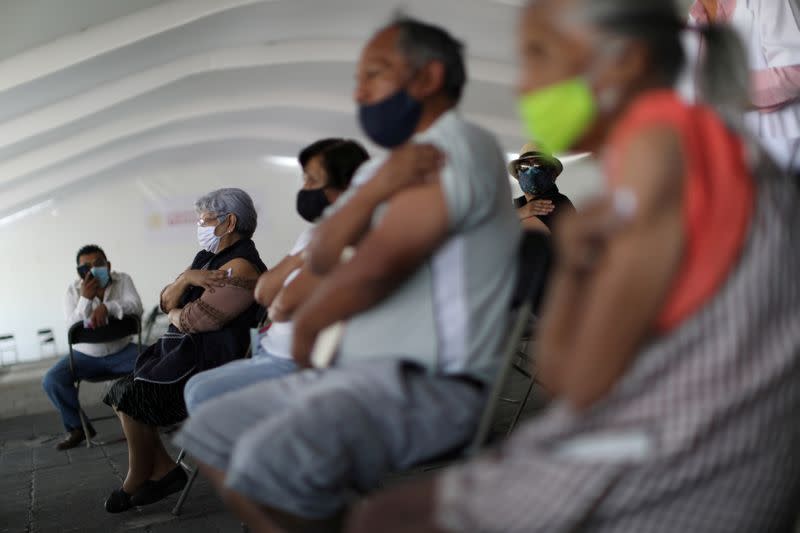By Cassandra Garrison
MEXICO CITY (Reuters) – Mexico’s private medical staff are protesting it not being included in the government’s COVID-19 vaccine rollout, just as the country braces for a possible third wave of infections .
Angered by what they perceive as discrimination by a government that prioritizes the public sector, hundreds of health workers who gathered outside a medical school last week hoping to be vaccinated ended up shouting “we want the vaccine.”
About 500 of the protesters eventually got their wish that day.
“We realized we weren’t even considered,” said David Berrones, a Mexico City ophthalmologist who launched an informal count of medical professionals awaiting a shot last month.
The government said it had included private primary health workers in its initial vaccination plans, but efforts to reach them all were hampered by unreliable personnel records.
The doctors of Mexico have paid a heavy price in the crisis. At least 3,679 medical personnel have died in the pandemic that has killed more than 200,000 people in Mexico to date, according to the latest official data. According to Amnesty International, the toll rate is the highest worldwide for health workers.
The government has warned that another spike in infections could follow the recent Easter holidays.
Berrones and other frustrated medical professionals argue that Mexico’s left-wing government gave priority to public sector workers. While official figures from Mexico suggest many thousands of health workers are still waiting for vaccinations, the data does not distinguish between the public and private sectors.
According to government figures, Mexico had 964,000 public sector health workers in 2019.
Reuters was unable to determine how many private sector health workers there are in Mexico. Berrones said more than 28,700 medical and dental personnel had signed his census since March 11, including some from the public sector.
According to government data, more than 877,500 health workers had received at least one dose of vaccine by April 7, with no split between public or private.
Mexico has administered nearly 9.7 million vaccine doses nationwide to date. Seniors and teachers have also been given priority.
In comparison, Brazil, which has vaccinated a similar segment of the population, has administered more than 7.3 million vaccine doses to health professionals. Argentina has given 1.5 million doses to health workers. Like Mexico, Brazil and Argentina do not differentiate between public and private sector workers in their data.
When asked how many health workers in the private sector had been vaccinated, Deputy Health Minister Hugo Lopez-Gatell, Mexico’s coronavirus tsar, said this week that the government is protecting all health workers in need of protection.
Efforts to identify medical professionals most at risk for infection have been complicated by “bloated” private sector personnel lists, Lopez-Gatell said.
The Mexican Ministry of Health did not respond to requests for comment.
A Mexico City gynecologist said he and his colleagues in a small private hospital have still not been vaccinated, despite also having to work in a public hospital under a mandatory social program.
“As soon as you can buy the vaccine in the United States, I will go,” he told Reuters on condition of anonymity, fearing it could cost him his job.
More than 40 doctors at his hospital signed a letter dated March 19, seen by Reuters, demanding vaccines. But they did not come, he said.
Meanwhile, Mexico’s National Academy of Medicine has urged the government to consider all physicians “who view them as a group vulnerable to contracting the disease,” in a March 12 letter posted on its website.
“It’s like you’re at war,” said the gynecologist. ‘Who are the people you will be the first to give weapons to? Soldiers, right? ‘
(Reporting by Cassandra Garrison; edited by Bill Berkrot)
